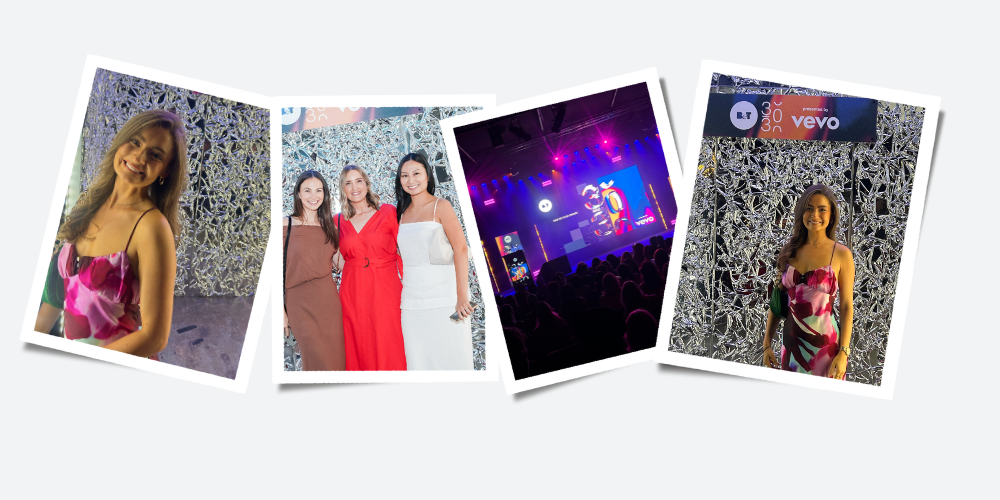What’s the difference between freelance and contract?
Your guide to shorter term contracts in the marketing world.
Kicking off a job search can be overwhelming, particularly if you’re thinking of a shorter-term contract and not sure where to start. You might see a number of different roles advertised like ‘Freelance’ or ‘contract’ or ‘fixed-term’ and unsure what the difference is. You’re likely not the only one.
We’re here to take the guess work out of it for you and have outlined some key differences below to arm you with the knowledge you need to consider before you hit apply.
Freelance
The term “freelance” often gets used when someone works for themselves or for a number of different clients over a period. Often used in creative industries and is attractive for it’s uber flexibility and ability to work short-term contracts with varying hours.
Why Freelance?
- Freelancing offers the opportunity to engage in various short-term agreements and experience different styles of companies. You might work with one company for 6 weeks on a project, then return again 6 months down the line. Being a freelancer gives you that flexibility to pick and choose the length of the project, depending on the work required and what suits your lifestyle at the time.
- A job might be briefed as a freelance contract when there is an immediate need for someone to join the team, but it’s not determined exactly how long they will be needed for. This could be due to short-term holiday cover, sick leave or a specific project that needs additional resource. The role might start out as a short-term agreement, e.g. 2 month freelance contract but then extend longer as needs and requirements change. It’s not uncommon for contracts to extend several times, so don’t let the initial length deter you.
- Typically, there is a very quick hiring process for a freelance role, with hiring managers often seeking candidates that are available immediately or within a short-time frame.
- Freelance roles are usually created with a very specific need in mind, which gives you a solid understanding of the type of projects you will work on, allowing for a very clear hiring process centred around skills and ability to hit the ground running with minimal training required.
- As a marketer, working in a freelance capacity gives you opportunity to work on a number of different projects, gain varied experience and build a diverse portfolio of work. It could be a way to try out different styles of companies, ahead of determining your next long-term move, or you might decide you like the lifestyle offered and choose to freelance longer term. Many agency suits and marketers build a career through freelancing and become highly regarded in the industry for being a capable pair of hands with fresh ideas and perspectives.
- Freelancing is also a great opportunity for International Talent to gain local market experience in Australia when first arriving and also works well with any restrictions on visas, like only being able to work with one company for up to 6 months on the WHV.
- A freelance contract is a great opportunity for you to prove yourself to an employer and if you both agree that it’s a great fit and an opportunity becomes available full-time, you may be offered a full-time contract, often known as “temp to perm”.
How does it work?
- Freelancers can choose to use an ABN and invoice clients directly or go on payroll through their client or recruiter that has made the introduction.
- When using an ABN, you manage your own income, including tax, super and GST. It only takes a few minutes to set yourself up as a sole trader through the online application so you can be set up fairly quickly!
- In the marketing industry it’s common to see freelance rates outlined as a Day Rate. The rate is usually agreed with the understanding that you get paid for the days worked, without additional pay for sick leave, holiday etc so this is usually factored into the agreed rate.
- When it comes to notice period, a minimum of 24-48 hours is usually required but 1-2 weeks is more common. That being said, if you’ve committed to a short-term contract, it’s highly recommended that you complete the project or agreed timeframe before moving on to any new work, in order to protect your reputation and do the right thing by the company.
Fixed-Term Contract
A contract role is typically a longer-term agreement between both the client and candidate, where you become an employee of the organisation for a set period of time. Commonly we see these as 6-12 months in length, to cover a maternity leave or specific project need.
Why contract?
- When taking on a fixed-term contract, you get the benefits of being an employee of the company, often with the same benefits of permanent staff, just pro-rata to the contract length e.g. annual leave, sick leave etc.
- Being longer in length, e.g. usually greater than 6 months, there is a level of job security that doesn’t come with freelance that is enjoyed by many candidates. A standard notice period applies if either party decides to end the contract ahead of the initially agreed end date.
- The hiring process is usually more intensive than a freelance contract but still much shorter and streamlined than a permanent hire, again those candidates that have shorter notice periods being highly sought after.
- The talent pool of competition is usually smaller with contract roles, as those that are already in permanent positions are less likely to apply for a role that doesn’t offer the same longer-term career opportunities. This means you might have a better chance of securing the role than if it were a permanent opportunity.
How does it work?
- When securing a fixed-term contract, you’ll receive an employment contract just like you would if it were a permanent position, however, it will include the details of the contract length and entitlements.
- You will be required to give notice when you’re looking to leave, anywhere from two weeks to two months, depending on your role and level – or what may have been agreed upon in your contract when you started.
- If you get the opportunity to secure a new permanent opportunity with the organisation following this, you’ll then sign a new permanent contract.
- There are limitations (https://www.fairwork.gov.au/starting-employment/types-of-employees/fixed-term-contract-employees) for how long a fixed term contract can extend or be renewed, usually 2 years and not renewed more than once.
If you’re ready to start the job search for your next freelance or contract role, visit our Job Search page for our latest roles where you can filter by work type. Please note, due to the quick turnaround times of freelance briefs, we often fill roles with our network without advertising the role, so if you’re on the lookout, please do reach out and submit your CV today.










